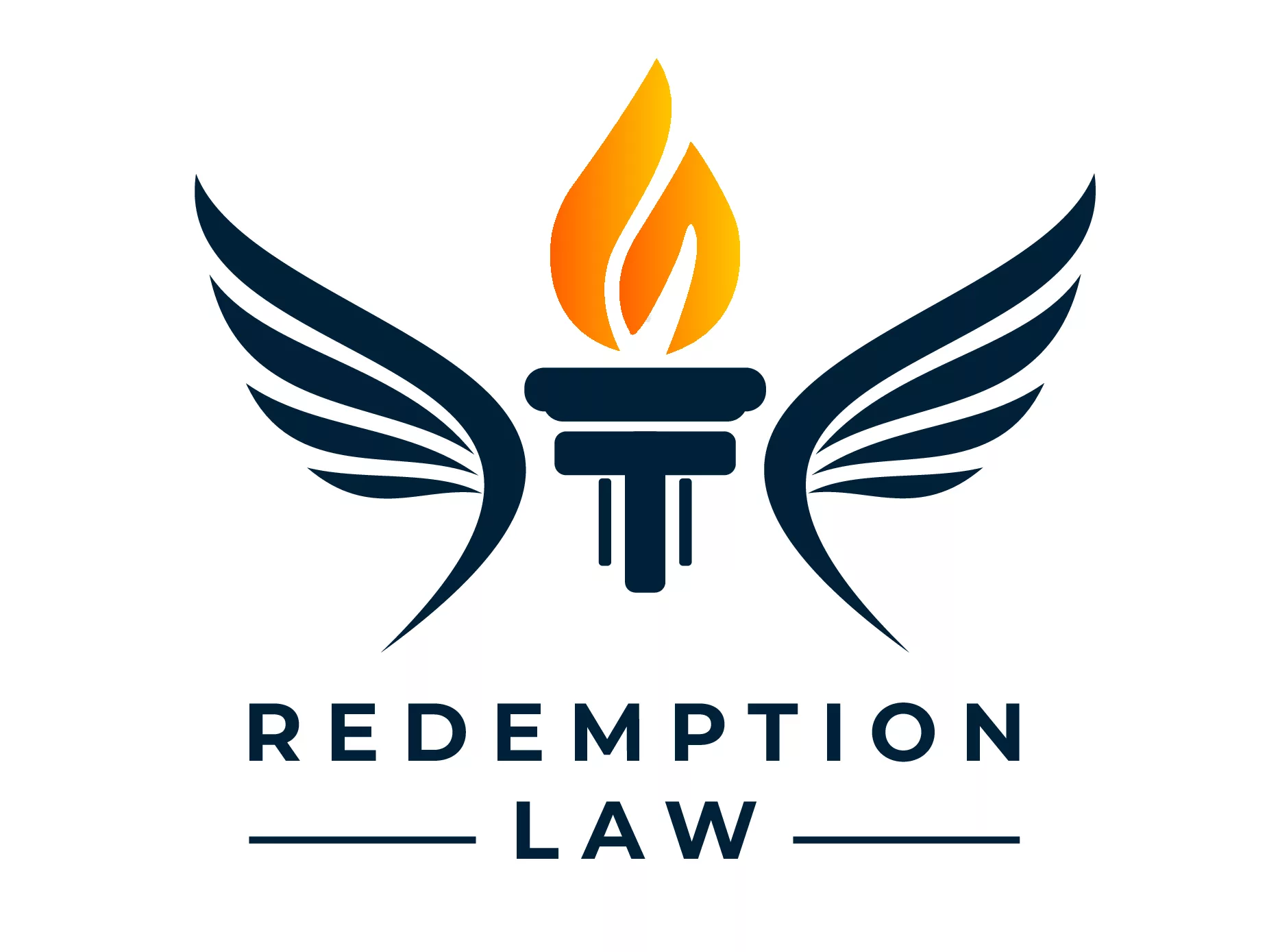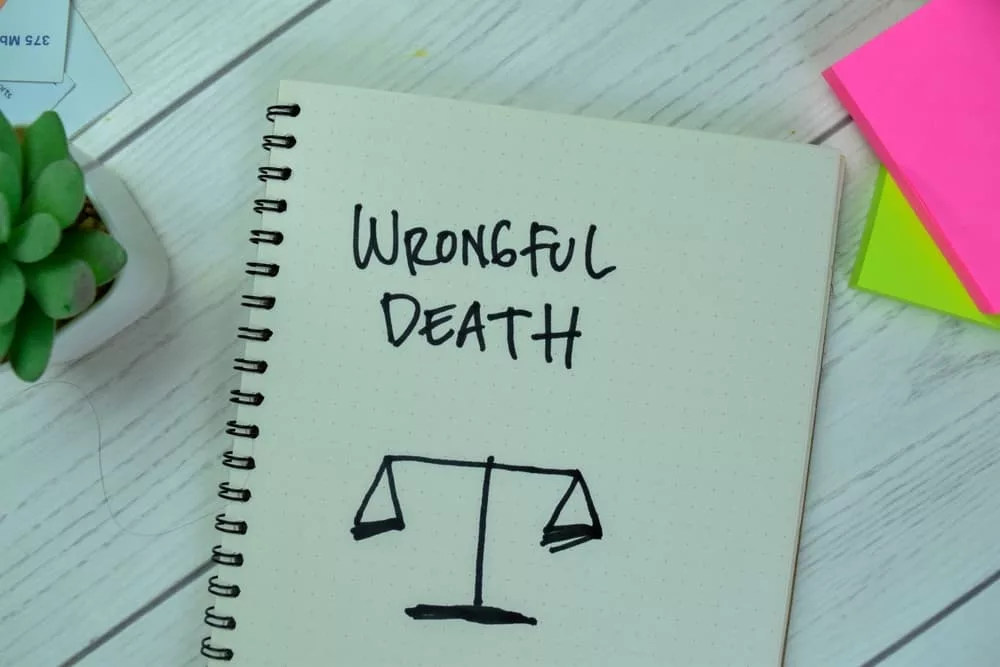If you lose a loved one in tragic circumstances, you go through one of the most heart-wrenching experiences anyone can endure. If another party’s actions or inactions caused that death, this compounds your loss. In these instances, surviving family members may file a wrongful death claim to pursue compensation. Learn more about wrongful deaths and how a wrongful death attorney can help.
Schedule a Free Initial Consultation Today!
The Legal Definition of Wrongful Death
A wrongful death occurs when the negligence, recklessness, or intentional misconduct of another party causes a death. A wrongful death claim is a civil claim, meaning the deceased person’s family or estate can file a lawsuit against the responsible party to pursue a wrongful death settlement.
Causes of Wrongful Deaths
Wrongful death cases can arise in a wide range of situations, including motor vehicle accidents and slip and fall injuries. According to the Insurance Institute for Highway Safety, 39,508 fatal motor vehicle crashes killed 42,939 people in one year recently. Inattentive driving, distracted driving, and speeding commonly cause fatal accidents.

Fatal slip and fall injuries can occur anywhere. These accidents can happen at stores, concert venues, schools, parking lots, sidewalks, and private individuals’ homes. According to The Centers for Disease Control and Prevention, fatal slip and fall injuries accounted for 44,686 deaths in a recent year.
Tripping hazards, wet or slippery surfaces, dangerous staircases, inadequate lighting, insufficient guardrails, and improper floor maintenance or design can all cause fatal slips and falls.
These statistics underscore the importance of pursuing compensation for victims and surviving family members whenever another party’s negligence or misconduct causes a death. In these cases, a wrongful death attorney may help surviving family members pursue compensation for their losses.
The Basis of Wrongful Death Claims: Duty of Care, Breach of Duty, Causation, and Damages
To build a strong wrongful death claim, an attorney must establish four main elements: duty of care, breach of duty, causation, and damages.
What Is “Duty of Care” in Wrongful Death Claims?
Duty of care is a legal obligation that requires individuals or entities to behave reasonably and safely when they engage in activities that could potentially harm others. One example is a motorist’s duty to drive safely and follow traffic laws. Another example is a property owner’s obligation to safely maintain their premises. In both these situations, individuals should exercise reasonable care to prevent harm to others.
An attorney must first establish that a duty of care existed in the context of a wrongful death claim. They can then move on to the next element of the claim: breach of duty.
Understanding Breach of Duty in Wrongful Deaths
Breach of duty occurs whenever a party—a person or an entity—fails to fulfill their duty of care and causes injury to another party. In the context of wrongful death, a breach of duty means that the defendant did not act with reasonable care and, as a result, caused the victim’s death.
Examples of actions or inactions that may constitute a breach of duty include a driver speeding and causing a fatal accident or a property owner failing to repair a hazardous condition on their premises.
To prove a breach of duty, wrongful death attorneys often have to gather evidence, consult with relevant experts, and build a strong case for their clients. After an attorney confirms that a breach of duty has occurred, they then explore causation.
The Role of Causation in Wrongful Death Claims
Causation is a crucial element in any wrongful death claim. This term refers to the connection between the defendant’s breach of duty and the victim’s death. Wrongful death lawyers must prove that the defendant’s actions or inactions directly caused the death. In other words, the victim would not have died had it not been for the defendant’s breach of duty.
The but/for test is a common method of establishing causation in wrongful death cases. This test asks whether the victim would have died but for the defendant’s breach of duty.
If the answer is no, then causation is likely established. Other methods of proving causation include assessing the foreseeability of the harm or determining if the defendant’s breach of duty was a substantial factor in causing the victim’s death.
Proving causation in a wrongful death claim may require the expertise of skilled attorneys and expert witnesses. Expert witnesses—such as medical professionals, accident reconstruction specialists, and engineers—can provide valuable insights into the cause of the victim’s death. Wrongful death attorneys may need to gather medical records, police reports, and eyewitness testimony to establish causation.
Damages: How Much Compensation Can Surviving Family Members Claim?
In a wrongful death claim, the victim’s family or estate receives damages as monetary compensation for the losses they’ve suffered because of the victim’s untimely death. While no money could ever replace a loved one, wrongful death settlements hold negligent parties responsible. The law generally divides wrongful death damages into two categories: economic and non-economic.
Economic damages compensate surviving family members for tangible, monetary losses:
- Any medical costs the family incurs as a result of the injury that led to the victim’s death:
- Ambulance ride.
- ER visit.
- Hospitalization.
- Surgery.
- Reimbursement for reasonable funeral and burial expenses:
- Cremation or embalming services.
- Burial plot.
- Headstone.
- Funeral home expenses (hearse, visitation, and staffing).
- Compensation for the financial contributions the victim would have made to their family had they lived:
- Lost income.
- Benefits.
A lawyer can easily quantify economic damages incurred due to wrongful death.
Non-economic damages, on the other hand, are more subjective.
They compensate surviving family members for their intangible losses, such as:
- Loss of companionship or parental guidance.
- Loss of consortium.
- Emotional pain and suffering.
Monetary awards for non-economic damages can be a major component of wrongful death settlements.
An Accurate Assessment of Wrongful Death Damages
Calculating damages in a wrongful death claim is a complex matter. Arriving at an appropriate settlement amount often requires the expertise of economic and financial experts. They can assess the monetary value of the victim’s lost income, benefits, and other financial contributions.
A wrongful death attorney can work closely with these experts to ensure that the claim accurately represents the full extent of losses.
Some states may limit the financial compensation surviving family members can receive in wrongful death cases. An attorney can inform surviving family members of any applicable caps in their jurisdiction.
Time Limits to File Wrongful Death Claims
The statute of limitations limits the time by which surviving family members can file a wrongful death claim. Failing to file a claim by that deadline can result in the loss of the right to pursue compensation.
While each state sets its statute of limitations for wrongful death lawsuits, mitigating factors may apply. Factors affecting the statute of limitations in a wrongful death case may include the date of the victim’s death or the discovery of the cause of death. In some cases, the date of the defendant’s conduct that led to the death may change the deadline.
Additionally, certain circumstances may allow for the tolling or pausing of the statute of limitations (for example, when the victim’s family doesn’t know about the wrongful death or the defendant avoided the serving of a lawsuit).
Legal Standing: Who Can File a Wrongful Death Lawsuit?
Legal standing refers to the right of an individual or entity to bring a wrongful death claim before the court. For these lawsuits, the wrongful death statutes in each state determine legal standing.
Individuals who may have legal standing to file a wrongful death claim include:
- Surviving spouse.
- Children.
- Parents.
- Other close family members.
- A personal representative of the victim’s estate.
Legal standing ensures that only those with a legitimate, legally recognized interest in the case can participate in proceedings and potentially receive compensation. An experienced attorney can determine who has the legal standing to file a wrongful death claim. They can also help guide you through the steps to assert your right to seek compensation for your loved one’s untimely death.
Immunity and Wrongful Death Claims
Legal immunity laws may shield certain entities or individuals from liability for injuries or damages, including wrongful death claims. Some negligent parties may make weak, inflated, or even untrue claims of legal immunity to shield themselves from a wrongful death lawsuit.
If someone other than an attorney working on your behalf tells you that legal immunity protects the negligent party from a wrongful death claim, don’t believe them. Consulting your wrongful death lawyer is the only way to know if immunity applies to your case.
How Much Does a Wrongful Death Lawyer Cost?
Many wrongful death law firms use contingency-fee agreements, meaning they collect their attorney fees after they successfully win a settlement on behalf of their client.
Generally, your lawyer collects a percentage of the settlement. Contingent attorney fees can be an excellent option for those seeking compensation for wrongful death, as they typically do not require an upfront payment; however, you may still need to pay other expenses—including court fees and other costs—regardless of the outcome of your case.
Some wrongful death attorneys may charge a flat or hourly fee. Most offer a free consultation or case review during which you can discuss fees and costs.
The Role of Wrongful Death Attorneys
A wrongful death claim requires a thorough understanding of:

- The four elements of a wrongful death claim:
- Duty of care.
- Breach of duty.
- Causation.
- Damages.
- A state’s statute of limitations.
- Those with the legal standing to pursue compensation.
- Any applicable immunity laws.
Each of these elements plays a crucial role in determining the outcome of a wrongful death case. You need a lawyer who understands these components to recover full compensation for the loss of a loved one.
An experienced personal injury attorney can guide you through the incredibly complex and emotionally challenging process, protect your rights, and advocate for the best possible outcome for your case. With the help of a wrongful death lawyer, you can pursue the settlement the law entitles you to receive. This compensation can’t take away your pain, but it can help you move forward after the tragic loss of your loved one.
Related articles
Related articles Related articles Related articles Related articles Related articles Related articles Related articles Related articles Related articles Related articles
Personal Injury
02 Feb 2024
How Long After An Accident Can You Claim Injury?





